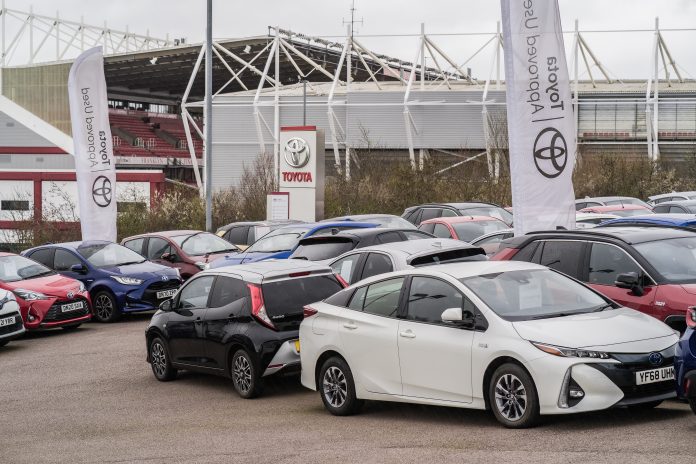Traditionally slow to embrace electric vehicles (EVs), Toyota is now taking bold steps to transition most, if not all, of its Toyota and Lexus models to hybrid-only versions. This move aligns with the automaker’s broader strategy to diversify its vehicle offerings rather than fully committing to an all-electric future. The decision underscores Toyota’s skepticism towards the prevailing industry belief that EVs will dominate the market soon.
Toyota’s hybrid-focused approach is part of its “multi-pathway” strategy, which includes hybrids, hydrogen fuel-cell vehicles, green fuels, and potentially new technologies. This strategy was reinforced by Toyota Chairman Akio Toyoda, who predicted that EVs would capture just 30% of the global market in January. As part of this shift, the automaker plans to evaluate each model’s potential for becoming hybrid-only during every redesign, with the next major overhaul being the RAV4 for the 2026 model year.
The shift to hybrid-only models is already evident in the upcoming 2025 Camry, which will no longer be offered with a gasoline-only engine. Toyota’s Land Cruiser and Sienna minivan have similarly transitioned to hybrid-only versions. Moreover, Toyota will likely introduce more plug-in hybrids, offering extended electric-only driving ranges before switching to gasoline power. This move could give the automaker a unique advantage in meeting stricter U.S. carbon emissions regulations that take effect in 2027, potentially saving the company billions in regulatory fines and costs.
Moreover, Toyota’s hybrid strategy aims to capitalize on the growing demand for hybrids as consumers seek alternatives to more expensive and less convenient EVs. As of June 2023, hybrids accounted for 37% of Toyota’s U.S. sales, up from just 9% in 2018.
Looking ahead, Toyota plans to increase its hybrid and plug-in offerings while continuing to invest in EV technology. The company is building a battery plant in North Carolina, which will have the capacity to produce 30 gigawatt-hours of batteries annually by 2030, enabling further expansion of its plug-in hybrid lineup. This strategy will allow Toyota to meet evolving emissions regulations while giving it more time to refine its EV technology and other next-generation powertrains.




